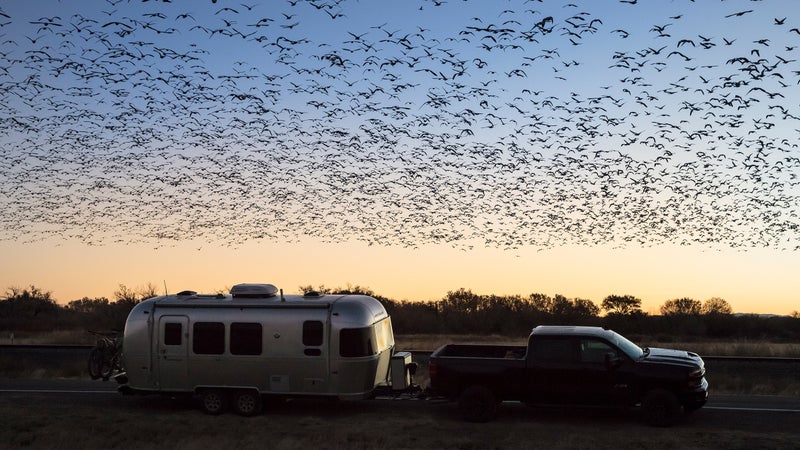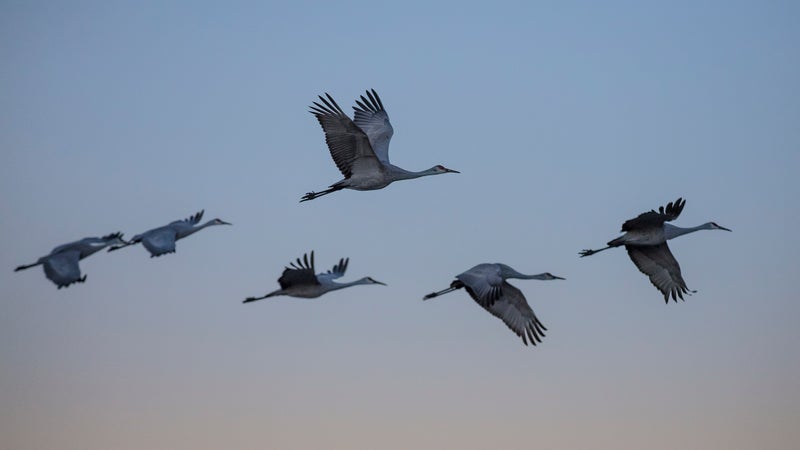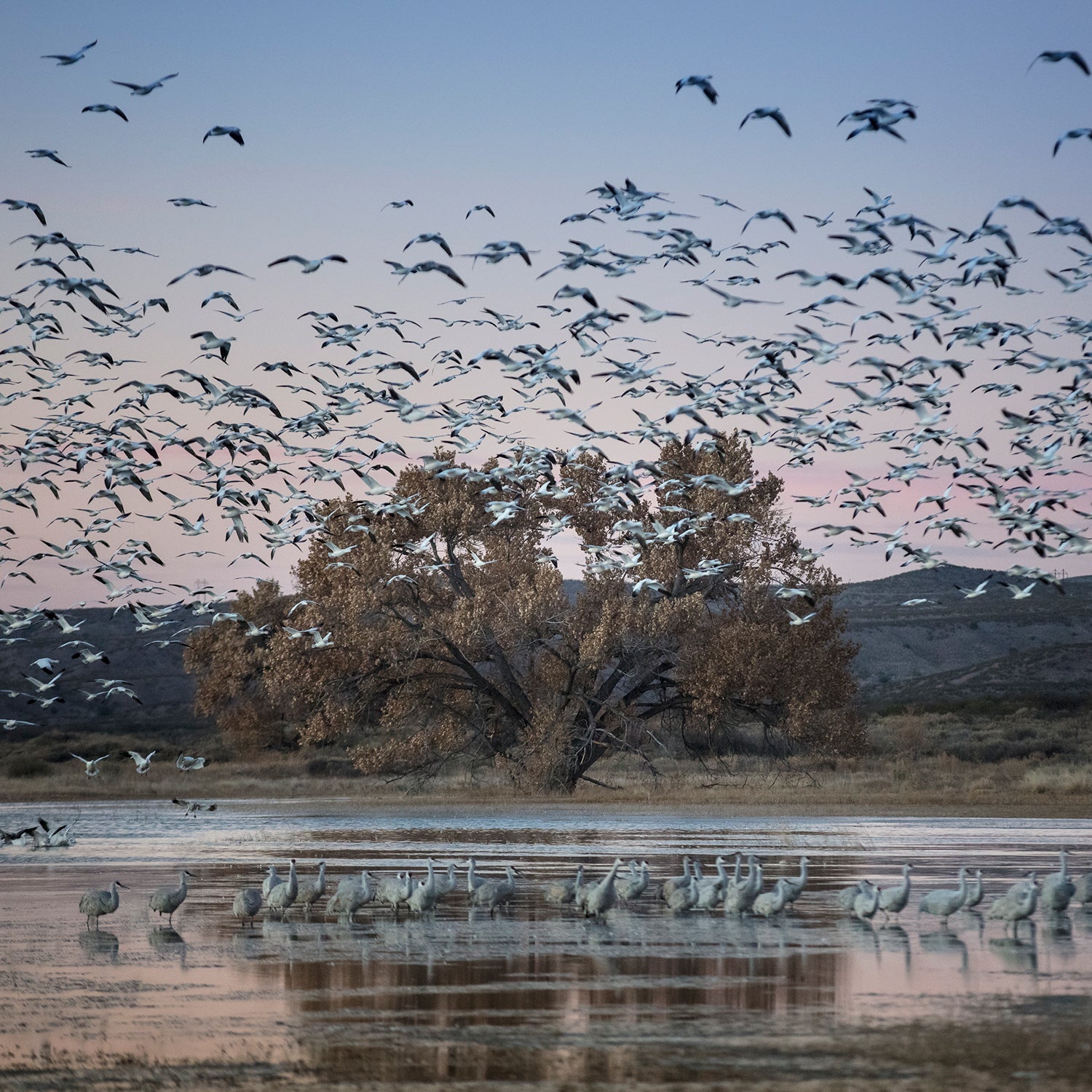You know those people who say they savor the season changes and the quiet hunkering down of the dark months? I’m not one of them.
I grew up on a high-desert plateau in Nigeria only a few degrees north of the equator, where the weather was as temperate as San Diego and my blood must have permanently warmed a few degrees. Don’t get me wrong: I love a good powder day and will never turn down a fat bike ride in the snow. But the shift from autumn to winter, with dark coming before I’ve finished my work day and my body not yet adjusted to the cold, makes me grumpy. On a ride a few weeks ago, I misestimated how quickly night would fall, as I tend to do this time of year, and ended up pawing my way back to the trailhead in the dark with frozen stumps for appendages. “Bah, winter,” I groused that night. Jen, my wife, who likes the cold about as much as I do but adapts to everything quicker, clucked at me.
A cold snap hit a few days later, and in 24 hours, daytime temps plummeted from unseasonable mid-60s to barely breaking 20. We felt a mark of pride this year for being prepared. Last winter, our first in Artemis the Airstream, an autumn Arctic snap caught us out with frozen pipes. A word of advice: Read your manuals and make preparations well in advance of the season changes. This year, we had the compressor standing by and Artemis blasted dry before the temperatures dropped.
It’s gratifying to feel like you take lessons from the road, and another thing we’ve learned is that we’re not really cold-weather campers. Artemis is tolerable below freezing, especially if we forgo the backcountry and visit sites with electric. But that tests our endurance for rowhome-style RV parks and hunkering down in a small space. Running her dry is also more hassle, as dishes, bathing, and all bathroom duties are either in the frigid woods or campground facilities. So even as we winterized the trailer, we simultaneously pulled up stakes.

I was hell-bent on getting south. “If we drive all night, we can be in Phoenix by morning,” I said as we motored out of the Sangre de Cristo mountains. As ever, Jen was the voice of moderation. “I was thinking we could stop for a few nights at the Bosque,” she said, referring to a place just a couple hours down the road.
The is a patch of wetlands in central New Mexico where tens of thousands of birds come to winter. It’s an inconspicuous and unlikely place just a few miles off Interstate 25, where snow geese, mallards, Sandhill cranes, and some 400 species of migratory birds roost during the cold months or rest en route to points south. It’s such flat, nondescript country that, despite the sign on the highway for the preserve, millions of motorists must pass here, oblivious to the spectacle. It’s yet another reminder of all the wonder hidden in plain sight. We just need to take the time. Even after our first visit almost a decade ago, we too often barrel past to warmer and more obvious attractions—as I was intent on doing this year. But though I huffed and exasperated and pulled up forecasts showing polar conditions for the next week, Jen calmly eased Artemis into Bosque Birdwatchers RV Park a little after dark. As ever, I’d be glad that she made the decision.
The birds overnight on the low wetlands but fly out during the daytime to feed in the fields, so the most dramatic moments for viewing are before sunrise and after sunset, as the animals first disperse then return to their roosts. When we rolled out from Artemis in the darkness of predawn the next day, the thermometer read seven degrees and I still was cantankerous about the decision to stay. But then, as we climbed from the truck at the first pond in the refuge, I was overcome by a piercing cacophony of shrieking, honking, yowling birds like some wild, electric traffic jam. Though I couldn’t see them yet in the gloaming, thousands of snow geese and Sandhill cranes rested on the water. The clamor immediately snapped my perspective. The cold didn’t matter, nor the early morning. Not only were we fortunate enough to be here to witness something so basic and moving, but, by stopping here on our journey south, we were actually part of this primordial migration.

Before the sun rose, the birds lifted in a frenetic billow of flapping wings and howling cries. The snow geese went first, all of them rising at once like a blizzard in reverse. So profuse were they that they darkened the dawn sky. They flitted and circled as a single, massive organism and eventually shifted to the east like a fast-moving cloud. When they’d gone, the cranes, long and lithe and graceful, began slipping away in squadrons of four and five. All the while, I stood agog and immune to the cold in my puffy, marveling at the visceral moment. By the time the first shafts of sunlight struck, the water was a sheet of empty glass broken only by a few straggling birds and the fury of the lift-off had given way to winter silence.
Though we’re no birdwatchers, we toured the refuge and relished the quiet of gazing at the creatures in the fields feeding. I was struck that the birds don’t complain about the frigid conditions or how hard the winter might be—they simply follow their instincts and get on with it. For the first time in a while, I appreciated the cold and the changing season as part of this inevitable cycle. Jen graciously never gloated or said, “I told you so.” We stayed another day to catch the morning and evening roost. Then, after vowing to stop here on our trip south every year, we fired up the trailer and flew down the highway in search of easier living.
Even if I can appreciate the shift of the seasons, at the core, I’ll always be a desert-dweller.


